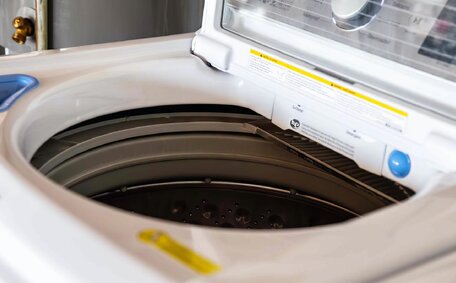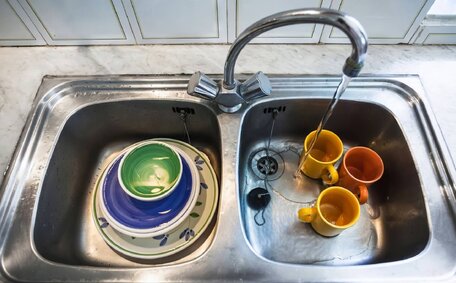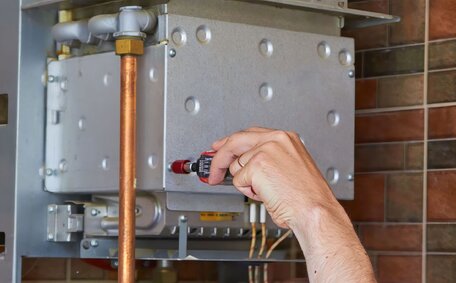Introduction: Can Pets Really Cause Blocked Drains?
Having a furry friend around the house can be a joy, but their presence may also lead to some unexpected plumbing issues.
When it comes to blocked drains, pets can certainly contribute in a variety of ways. From pet hair clogging up pipes to Fido dragging dirt inside, our four-legged companions can inadvertently cause problems. So how big of a role do pets really play when it comes to residential drain blockages?
While pets are often a factor, the causes of blocked drains can be complex. Damage from tree roots, ageing pipes, and accumulation of grease and waste matter are also major contributors. However, there are definitely ways our furry friends can add to drain troubles.
Pets may only be one piece of the puzzle.
Pet Hair is a Common Culprit in Drain Clogs
One of the biggest ways pets can lead to clogged drains is through shedding fur. As cats and dogs shed, that hair can accumulate and cause obstructions, especially in sinks and shower drains. As cats and dogs shed, that hair can accumulate and cause obstructions, especially in sinks and shower drains.
The small size and fibrous nature of pet fur means it can easily catch on any irregularities or rough edges inside pipes.
Pet hair drain blockages tend to occur most often in bathrooms. Pet hair drain blockages tend to occur most often in bathrooms. Even dogs that don’t directly use the bathroom still shed around the house.
Showers and bathroom sinks see a lot of pet traffic as we bathe and groom our furry companions. That hair can then be transferred by humans onto damp feet and bodies, once again heading down the shower or sink.
But sometimes clogs still happen. Gurgling sounds can also indicate a hairy blockage.
Signs of a pet fur clog include water draining slower and slower or even pooling up and refusing to go down at all. If simple drain cleaning methods don’t fix the issue, calling a professional plumber may be required. Lint screens and drain covers can help catch pet hair before it enters the pipes.
How Pet Waste Can Lead to Blocked Drains
Pet waste, including animal faeces, litter and food scraps, can also contribute to clogged drains when flushed or washed down the sink. Pet waste, including animal faeces, litter and food scraps, can also contribute to clogged drains when flushed or washed down the sink.
According to studies, over 40% of dog owners admit to flushing dog waste down the toilet. Even cat litter can clump up and cause obstructions if flushed.
When pet waste makes its way into drains, it can cling to pipes and accumulate over time. Chunks of food and litter act as magnets for grease, hair and other debris flowing through the drain.
A large mass eventually forms, narrowing the pipe diameter and impeding water. Drains back up as a result of these obstructions.
To prevent pet waste problems, optimal disposal is key. With proper disposal habits, pet owners can avoid plumbing disasters.
Waste should be picked up in bags or litter boxes and sealed before placing in the trash. Leftover pet food and bowl washings should go in the garbage as well.
Chewing on Pipes: An Unexpected Risk
p>
Dirt and Debris from Pets
Our furry friends love to run, play, and dig in the yard. But all that frolicking outside can lead to dirt and debris getting tracked back inside. Pets enter the house with dust, leaves, twigs, and mud clinging to their paws and fur. They then walk all over floors and furniture, leaving traces throughout the home.
All this outdoor debris they bring in then makes its way down drains when we bathe them or clean up after them.
More bacteria means a higher likelihood of a biofilm eventually forming on pipe walls and causing an obstruction. So while our pets are just being pets, they unintentionally carry in substances from outside that can contribute to future blockages.
These organics provide food for sewer bacteria, increasing their numbers. The dirt itself can also accumulate and cake onto the sides of drains. Leaves, grass clippings, and dirt contain organics that can begin decaying once inside pipes.
To help reduce this debris, pet owners can wipe down paws before letting animals inside. Make sure to regularly sweep and mop floors as well. To help reduce this debris, pet owners can wipe down paws before letting animals inside. With some extra care, pet owners can stay on top of the debris dilemma.
Brushing outdoors is another option.
Knocking Objects into Drains
Our pets can sometimes accidentally contribute to drain blockages in an unexpected way - by batting or knocking foreign objects down the drain. Kitty’s favourite toy or Fido’s cherished ball can quickly go from plaything to pipe obstruction if they fall into a sink or tub drain.
According to plumbing statistics, around 12% of residential drain clogs are caused by unusual items like pet toys, balls and other objects making their way into the pipes. Once inside, these objects can get stuck in bends or snag on joints. Something as small as a ping pong ball can fully block narrower pipes.
To prevent pet-related drain mishaps, vigilant monitoring during bath time and play is key. All drains should be equipped with sturdy strainer baskets that will catch dropped items while still allowing water flow.
Keeping plumbing fixtures clear of tempting pet toys is also advised. With some added awareness, pet owners can avoid this issue.
Other Causes of Blocked Drains
p>
Preventing Blocked Drains as a Pet Owner
p>
Using Drain Strainers and Filters
As we’ve discussed, pets can contribute to drain blockages in a variety of ways, from hair and dirt to foreign objects. Luckily, there are some simple preventative measures pet owners can take. One of the most effective solutions is using drain strainers and filters.
Adding drain strainers or filters over critical plumbing fixtures creates a barrier that catches debris before it enters the pipes. For sinks, tub drains and floor drains, securing a strainer basket helps filter out pet hair and particles. Meanwhile, affordable in-sink strainers easily catch food scraps in the kitchen.
Strainers and filters come in different shapes, sizes and designs. They should also be cleaned or emptied frequently to prevent overflowing.
It’s best to choose ones with very fine mesh that will snag tiny items like hair. With routine maintenance, these devices can significantly reduce what actually makes it into drains.
At Parramatta Plumbing, we offer drain strainers custom-fit for sinks, tubs and other home fixtures. Our team can recommend the ideal solutions for filtering pet hair and debris before it reaches pipes. Properly outfitting your plumbing with strainers provides affordable prevention against pet-related clogs.
While drain strainers form a great first line of defence, it’s still possible for blockages to occur. If you notice signs like slow drainage, contact our experts. We use state-of-the-art equipment to clear any pet-related clogs and get your pipes flowing freely again.
Bathing Pets Outdoors
One of the best ways for pet owners to avoid contributing to blocked drains is by bathing animals outside when possible. Indoor bathing inevitably sends a fair amount of hair, dirt and debris down the drain. But moving the bathing process outdoors helps keep shed hair, dander and soap contained.
Outside, fur and other particles can fall harmlessly onto the ground or grass instead of heading down the pipes. Owners may also feel more comfortable rinsing messier pets outdoors. Any mud or large clumps of organic matter can be sprayed or hosed away from the home’s plumbing system.
For homes with yards, setting up an outdoor pet washing station is ideal. This might include attaching a hand sprayer to an exterior faucet and designating a gravel, concrete or grassy area of the yard. For apartment dwellers without a yard, bathtubs and sinks with strainers should be used.
While bathing pets outside requires more effort, it pays off in the long run by reducing indoor dirt and clogs. Any hair or debris left behind outside can simply compost into the lawn or garden soil. With strategic planning, pet owners can make outdoor bathing a regular habit and avoid unnecessary strain on plumbing.
Disposing of Waste Properly
When it comes to preventing drain blockages, properly disposing of pet waste is crucial. There are right and wrong ways to handle animal faeces, litter and other debris.
First and foremost, pet waste should never be flushed down the toilet. First and foremost, pet waste should never be flushed down the toilet. Always bag waste and dispose of it in the trash instead.
Litter can also clump up inside pipes if flushed.
Food scraps and leftovers must be discarded in the garbage as well. Avoid washing excess bits of food down the drain after meals. Use a strainer when rinsing dishes to catch any particles.
With the proper disposal habits, pet owners can keep their plumbing clear of excess waste and potential clogs. By being responsible with waste handling, homeowners create a more harmonious environment for their pets, plumbing and themselves.
Conclusion: Working with Your Pet to Avoid Blockages
p>






